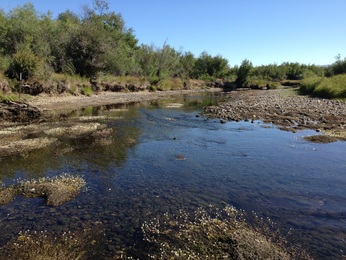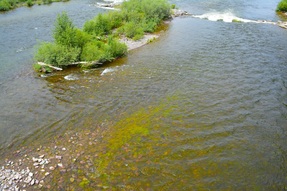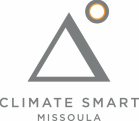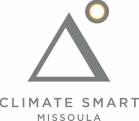 Low flow levels along the Upper Clark Fork Low flow levels along the Upper Clark Fork So, what’s the deal with water and climate change? Turns out, there are lots of connections. We dove in deep at our last monthly meetup, Thursday August 4th at Imagine Nation Brewing. We had sobering facts to consider, as well as good news to celebrate when it comes to water issues in Missoula. Chase Jones, the Energy Conservation Coordinator for the City of Missoula, said it best: Water is integral to the identity of our town. The Clark Fork River is, of course, not just a critical resource but also is the centerpiece of Missoula! One organization doing important work of keeping the river flowing and clean is the Clark Fork Coalition. Alex Leone, CFC’s Restoration Specialist, was on hand on Thursday to share about his work with the Montana Climate Office on the statewide Montana Climate Assessment, the results of which are due out next year and will focus on climate change impacts to water resources, agriculture, and forests. Alex also gave us an update on water flows, sharing the shocking news that he had just taken a flow measurement of only 2.6 cfs on the main stem of the Clark Fork almost 100 miles upriver from Missoula. Extremely low flows like this kill fish and aquatic organisms and reduce available water downstream, harming the overall health of the river. Low flows and warm water temperatures also are responsible for that pesky algae you might have seen in the river – usually, this algae gets cleared out by the tumbling action of water during peak runoff, but this year, peak runoff wasn’t high enough. These trends are likely to continue as climate change impacts spring snowmelt timing and quantities.  Algae in the Clark Fork River near Higgins bridge Algae in the Clark Fork River near Higgins bridge Agriculture is the major direct contributor to low flows along the Clark Fork, compounding snowmelt and peak runoff challenges. This is true elsewhere too: in Montana, agriculture accounts for 95% of water use. Greater understanding about the efficiency of flood irrigation versus overhead/sprinkler irrigation remains elusive, though much-discussed. It’s a much more complex issue than it seems on the surface: compared with sprinklers, with flood irrigation less water is absorbed by plants, but more water infiltrates through the soil and recharges the groundwater – and eventually returns to the river. Adding to the challenge of irrigation is the complexity of water rights and laws – currently, unlike the Blackfoot River, the upper Clark Fork doesn’t have a drought plan, which makes it nearly impossible to regulate water usage. Speaking of returning to the river, what about all the water that falls on our streets and flows through our pipes here in town? Travis Ross and Michelle Hutchins of the Missoula Valley Water Quality District gave us some insight into stormwater and wastewater issues. In Missoula, about 70% of our stormwater is returned to our aquifer, naturally treated through the process of infiltration on the way. This is great - less stormwater draining directly into the river means a cleaner river! On the wastewater treatment end, Missoula is also on the cutting edge: a large poplar plantation near the treatment plant receives nearly 1 million gallons a day of treated wastewater, feeding the trees (which are a great carbon sink!) and further filtering the water before it re-enters the river. Beth Schenk, the sustainability coordinator at St. Patrick Hospital, summarized the conversation well: “The lifecycle of water is important. We have a wonderful aquifer, but it matters what we put in it!” Water is clearly connected to so many other issues: waste, agriculture, even energy. Energy is one connection we don’t often think about. Not only is water a precious resource in and of itself, but pumping water to our homes and cleaning it at the wastewater treatment plant uses a ton of energy – the plant is by far the biggest municipal energy consumer. As Missoulians, conserving water helps support better water quality and quantity and reduce our carbon footprint at the same time! Water will continue to offer benefits as well as challenges in the years to come, especially as climate change impacts our region. That’s why we at Climate Smart are very excited about our City’s progress in the quest to own our water system. Local control over our water gives us the ability to talk about and deal with all the above issues and more, working for the good of our entire community!
2 Comments
11/9/2020 09:27:51 pm
Thanks for the informative and helpful post, obviously in your blog everything is good. I give you a site about instagram, please coming soon
Reply
Leave a Reply. |
AuthorsAbby Huseth Archives
July 2024
Categories
All
|

 RSS Feed
RSS Feed


